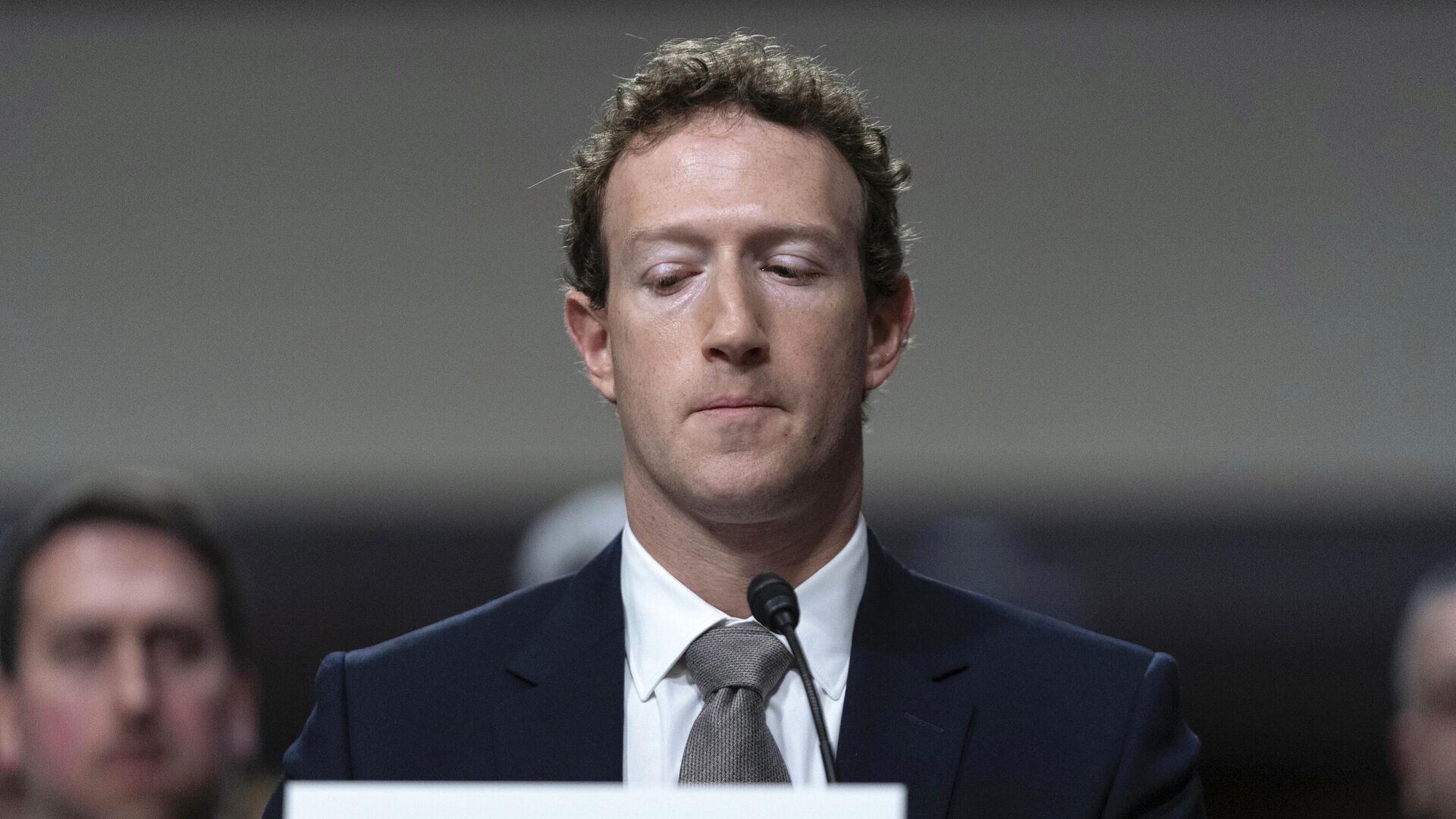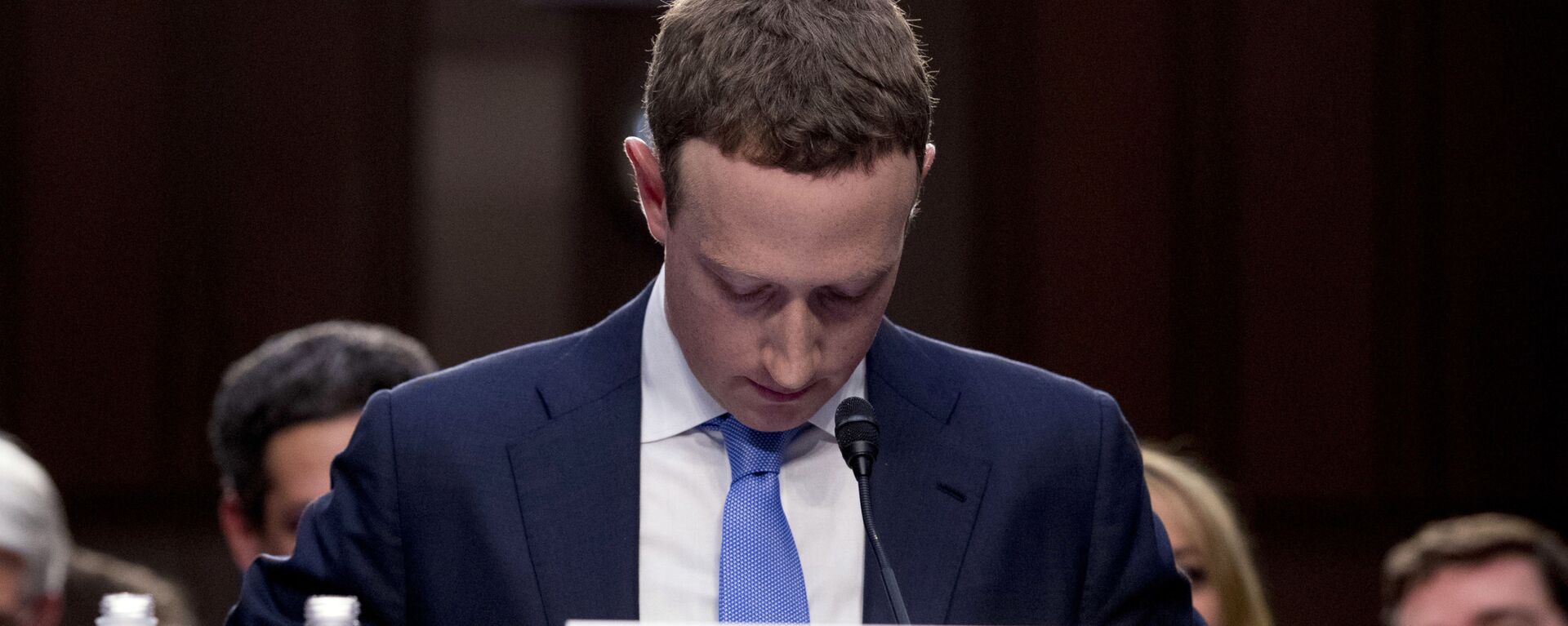https://sputniknews.in/20240919/metas-ban-on-sputnik-likely-illegal-in-india-sources-8173931.html
Meta’s Ban on Sputnik Likely Illegal in India: Sources
Meta’s Ban on Sputnik Likely Illegal in India: Sources
Sputnik India
Meta* banning the accounts of Sputnik and RT on its platforms raises questions about the tech giant's legal status in India, where it functions as an "intermediary" rather than a "publisher", sources have told Sputnik India.
2024-09-19T17:52+0530
2024-09-19T17:52+0530
2024-09-19T17:57+0530
indo-russian relations
mark zuckerberg
india
delhi
russia
us hegemony
foreign conspiracy
press freedom
it industry
digital inequality
https://cdn1.img.sputniknews.in/img/07e8/09/11/8161659_0:0:3072:1728_1920x0_80_0_0_c9efd07bcf494526a0bd331460c2b541.jpg
Meta didn't likely inform the Indian authorities before implementing its decision to ban Russian media entities, informed sources said.It has been pointed out that Facebook, one of the Meta's companies, told India's Supreme Court and the Delhi government back in 2020-2021 that it was an "intermediary" under India's Information Technology (IT) Act, 2000. The statement was made by Facebook in the Ajit Mohan (previously Vice President and Managing Director of Meta India) and others vs Legislative Assembly of National Capital Territory of Delhi and others case, the judgement for which was delivered in 2021.At the time, Facebook submitted before the court that its functioning in India was governed under the IT Act.In its judgement, the three-judge Supreme Court (SC) bench had questioned Facebook over its different "business models" across different jurisdictions.Pankaj Singh, a Delhi-based lawyer, told Sputnik India that the judgement of the 2021 case were relevant to Meta's decision to ban Russian media platforms in India, as Meta had arguably overstepped its mandate under the IT Act in acting as a "publisher".*Meta and its products are banned in Russia
https://sputniknews.in/20240918/ex-prasar-bharati-ceo-we-dont-need-censorship-from-western-tech-giants-8162196.html
india
delhi
russia
us
Sputnik India
feedback.hindi@sputniknews.com
+74956456601
MIA „Rossiya Segodnya“
2024
Dhairya Maheshwari
https://cdn1.img.sputniknews.in/img/07e6/0c/13/138962_0:0:641:640_100x100_80_0_0_2cb44360dbcdf6d84bf4b299cd045917.jpg
Dhairya Maheshwari
https://cdn1.img.sputniknews.in/img/07e6/0c/13/138962_0:0:641:640_100x100_80_0_0_2cb44360dbcdf6d84bf4b299cd045917.jpg
News
en_IN
Sputnik India
feedback.hindi@sputniknews.com
+74956456601
MIA „Rossiya Segodnya“
Sputnik India
feedback.hindi@sputniknews.com
+74956456601
MIA „Rossiya Segodnya“
Dhairya Maheshwari
https://cdn1.img.sputniknews.in/img/07e6/0c/13/138962_0:0:641:640_100x100_80_0_0_2cb44360dbcdf6d84bf4b299cd045917.jpg
meta ban on rt, sputnik ban, rt ban, us sanctions on rt, us sanctions against russia, intermediary in india, ajit mohan vs delhi case, delhi riots facebook, us sanctions, russia ukraine conflict, us elections, russiagate
meta ban on rt, sputnik ban, rt ban, us sanctions on rt, us sanctions against russia, intermediary in india, ajit mohan vs delhi case, delhi riots facebook, us sanctions, russia ukraine conflict, us elections, russiagate
Meta’s Ban on Sputnik Likely Illegal in India: Sources
17:52 19.09.2024 (Updated: 17:57 19.09.2024) Exclusive
Meta* banning the accounts of Sputnik and RT on its platforms raises questions about the tech giant's legal status in India, where it functions as an "intermediary" rather than a "publisher", sources have told Sputnik India.
Meta didn't likely inform the Indian authorities before implementing its decision to ban Russian media entities, informed sources said.
"Morally, we are against such a ban by Meta," they said.
It has been pointed out that Facebook, one of the Meta's companies, told India's Supreme Court and the Delhi government back in 2020-2021 that it was an "intermediary" under India's Information Technology (IT) Act, 2000.
The federal legislation describes 'intermediary' as someone that "recieves, stores or transmit" information on behalf of somebody else.
The statement was made by Facebook in the Ajit Mohan (previously Vice President and Managing Director of Meta India) and others vs Legislative Assembly of National Capital Territory of Delhi and others case, the judgement for which was delivered in 2021.
At the time, Facebook submitted before the court that its functioning in India was governed under the IT Act.
Facebook's counsel admitted at the time that as an intermediary, it "has no control over the content hosted on it and is in fact, prohibited from knowing the substance of the content on their platform or exercising any control over the same except as prescribed by (Indian) law."
In its judgement, the three-judge Supreme Court (SC) bench had questioned Facebook over its different "business models" across different jurisdictions.
"They cannot be permitted to take contradictory stands in different jurisdictions. Thus, for example in the United States of America, Facebook projected itself in the category of a publisher, giving them protection under the ambit of the First Amendment of its control over the material which are disseminated in their platform. This identity has allowed it to justify moderation and removal of content. Conspicuously in India, however, it has chosen to identify itself purely as a social media platform, despite its similar functions and services in the two countries. Thus, dependent on the nature of controversy, Facebook having almost identical reach to population of different countries seeks to modify its stand depending upon its suitability and convenience," India's top court said.
Pankaj Singh, a Delhi-based lawyer, told Sputnik India that the judgement of the 2021 case were relevant to Meta's
decision to ban Russian media platforms in India, as Meta had arguably overstepped its mandate under the IT Act in acting as a "publisher".
"Meta's ban can be challenged in the Supreme Court, based on the previous judgement delivered in Ajit Mohan vs NCT Delhi case. Meta could be made a party to this case," Singh offered.
*Meta and its products are banned in Russia



